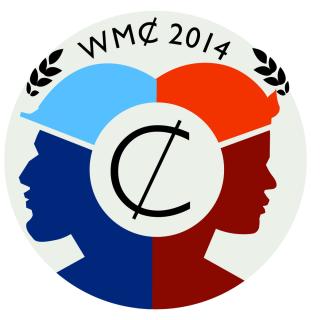
Laura Briggs on Reproductive Politics
Popular discussions of U.S. politics often distinguish "social" issues from "economic" issues. Laura Briggs shows us how looking at recent U.S. history through the lens of reproductive politics challenges this division.
2 Des 201747min

Lane Windham on Union Organizing in the 1970s
Since the most recent election, we've heard a lot of news about the so-called working class. But all too often, this term seems to refer to white men instead of the diverse group of people who actually comprise the working class. Similarly, in the years since the 2008 recession, more and more attention has been given economic inequality that has grown ever larger over the past few decades. On today's show, we speak with Lane Windham about union organizing in the 1970s and how these efforts reveal necessary context to understanding the many struggles of the actual working class, and what this history can reveal about the growth of economic inequality since the 1970s. Lane Windham is Associate Director of Georgetown University's Kalmanovitz Initiative for Labor and the Working Poor and co-director of WILL Empower (Women Innovating Labor Leadership). She is the author of Knocking on Labor's Door: Union Organizing in the 1970s and the Roots of a New Economic Divide.
2 Nov 201748min

Josh Davis on Activist Business in the 1960s and 1970s
Before Amazon bought Whole Foods, the shopping chain got its start as an activist business more focused on politics than profits. Join us to discuss the rise and fall of activist small business in last third of the twentieth century.
3 Okt 201742min

Steve James on Abacus Bank
It has become well known that none of those most responsible for the 2008 recession have faced significant prosecutions or gone to prison for their actions. But one bank did face a severe prosecution in the wake of the recession. On today's show, we speak to Steve James, the director of a new film about Abacus bank—a small bank that serves New York's Chinatown community, and how they found themselves facing a harsh prosecution, and how they fought back.
1 Sep 201731min

Emily Hobson on the Gay and Lesbian Left
We often talk about "economic conservatism" and "social conservatism," as if they're entirely divorced topics. Emily Hobson tells us about gay and lesbian activists from the 1960s through the 1990s who understood sexuality and anti-capitalism to be inextricably linked.
1 Aug 201748min

Nancy MacLean on the Radical Right and James Buchanan
In Nancy MacLean's new book—Democracy in Chains—she unveils a long history of efforts by right-wing officials and intellectuals to undermine democracy. She foregrounds the importance of the economist James Buchanan to this story. She shows us the historical context of how Buchanan came to be a key intellectual for those opposing school desegregation, unionization of workers, and much more. Nancy MacLean is the William Chafe Professor of History and Public Policy at Duke University and the award-winning author of Behind the Mask of Chivalry and Freedom is Not Enough.
4 Jul 20171h 6min

Kim Phillips-Fein on the Fiscal Crisis and Austerity Politics in New York City
Why do budgetary crises tend to lead to politicians and business leaders calling for governments to tighten their purse strings? How can we understand austerity as politics, not just common business sense? This week, we welcome back Kim Phillips-Fein to discuss her new book, Fear City, on the fiscal crisis in New York City in the 1970s.
1 Jun 201738min

Geoff Mann on the Keynesian Sensibility in a World of Ecological and Economic Inequality
The name John Maynard Keynes is an important one in the history of economic thought. Keynes's ideas became popular between during the interwar period, between World War I and II, as many sought to navigate the tumult of social and political upheaval elicited by World War I and the Great Depression. But our guest today, traces a longer tradition of a Keynesian sensibility—characterized by the need to maintain society—that goes back more than 100 years before this period to the French Revolution. We speak to Geoff Mann about his new book, that considers what this Keynesian sensibility might be able to tell us about our current moment, the rise of Donald Trump, and the potential for revolutionary struggles. Geoff also wants us to understand the importance for Keynesian thinking for the dual crises afflicting so many today: economic inequality and climate change. Geoff Mann is Director of the Centre for Global Political Economy, Simon Fraser University. He is the author of Disassembly Required: A Field Guide to Actually Existing Capitalism and Our Daily Bread: Wages, Workers and the Political Economy of the American West, and In the Long Run We Are All Dead: Keynesianism, Political Economy, and Revolution.
1 Mai 201753min





















